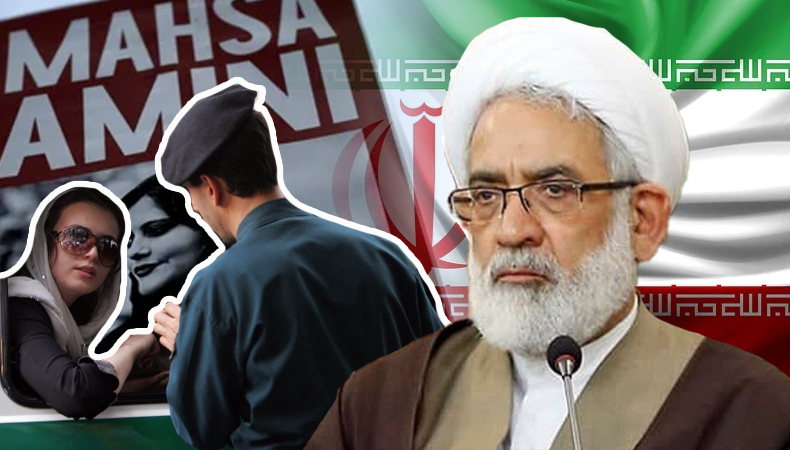Iran morality police unclear after ‘closure’ comment

State television claimed on Sunday that an Iranian politician said the administration was “paying attention to the people’s legitimate demands,” a day after a top official declared the morality police, whose actions helped spark months of protests, had been disbanded.
After Mahsa Amini, a 22-year-old inmate, passed away while under its custody in mid-September, the morality police’s ability to execute veiling rules came under fire. Amini had been imprisoned for allegedly dressing inappropriately in the Islamic Republic. Her passing sparked a wave of protest that has since turned into demands for Iran’s clerical leaders to be overthrown.
According to the semi-official news outlet ISNA, Iran’s head prosecutor Mohamed Jafar Montazeri stated on Saturday that the morality police “had been closed.” The agency gave no further information, and no mention of this alleged decision has been made by state media.
Nezamoddin Mousavi, a politician, suggested a less combative approach to the protesters in a report published by ISNA on Sunday.
Following a private discussion with many top Iranian officials, including President Ebrahim Raisi, he stated: “Both the administration and parliament underlined that the best approach to achieve calm and tackle the riots is by paying respect to the people’s demand, which is primarily economic.”
Read | Building up pressure on Iranian regime: three days strike called on by protesters
The purported closure of the morality police was not brought up by Mousavi. The force was founded in 2005 with the aim of arresting anyone who disobeyed the nation’s Islamic dress code. The Associated Press has not been able to confirm the force’s present status.
In defiance of Iranian law, there has reportedly been an uptick in women walking in public without headscarves since September as well as a reported drop in the number of morality police officers in Iranian cities.
The chief prosecutor, Montazeri, gave no additional information regarding the morality police’s future or whether it was a nationwide and permanent closure. The judiciary in Iran will, he continued, “continue to supervise behaviour at the community level.”
Montazeri was cited as saying that the administration was examining the law requiring the hijab in an ISNA report on Friday. Without going into specifics, Montazeri added, “We are working quickly on the hijab issue and we are trying our best to come up with a meaningful approach to deal with this phenomenon that hurts everyone’s heart.”
The announcement made on Saturday might be interpreted as an effort to win over the public and put an end to the demonstrations, which, according to rights organisations, resulted in at least 470 fatalities. According to Human Rights Activists in Iran, an organisation keeping track of the rallies, more than 18,000 individuals have been detained throughout the protests and the harsh security force crackdown that followed.
According to senior fellow Ali Alfoneh at the Arab Gulf States Institute in Washington, Montazeri’s declaration about shutting down the morality police may be an effort to quell domestic unrest without actually giving in to protesters.
The organisation (morality police) is despised by the secular middle class because it limits personal freedoms, according to Alfoneh. On the other hand, in more affluent parts of Iran’s cities, the “underprivileged and socially conservative class resents how they conveniently shy away from implementing the hijab regulations.”
Hossein Amirabdollahian, the foreign minister of Iran, evaded a direct response when asked about Montazeri’s assertion. During a visit to Belgrade, Serbia, Amirabdollahian said, “Be sure that everything is going very well in Iran, within the framework of democracy and freedom, which very clearly exists in Iran.”
Despite a brutal crackdown, the anti-government protests, which are now in their third month, have not abated. After decades of social and political persecution, including a rigid dress code imposed on women, protesters claim they are fed up. Young women are still at the forefront of the protests, refusing to wear the required Islamic headscarf in order to voice their opposition to clerical control.




